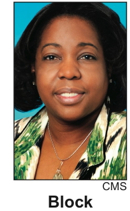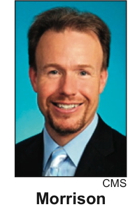Feb. 11, 2013
This “Good afternoon CMS Partners” e-mail was addressed Monday afternoon to the Forum and to representatives of the YMCA, the Latin American Women’s Association, A Child’s Place, the Mecklenburg PTA, Communities in Schools, Mecklenburg Ministries, Kids Voting, MeckEd, the Charlotte Chamber and the United Way. The attached article by Supt. Heath Morrison was published Sunday on the editorial page of the Charlotte Observer.
 Since joining the district in July, Superintendent Heath Morrison has engaged CMS and the broader Charlotte-Mecklenburg community to collaboratively develop The Way Forward – a comprehensive framework that will guide CMS as it strives to serve every child, every day, for a better tomorrow.
Since joining the district in July, Superintendent Heath Morrison has engaged CMS and the broader Charlotte-Mecklenburg community to collaboratively develop The Way Forward – a comprehensive framework that will guide CMS as it strives to serve every child, every day, for a better tomorrow.
As you know, one part of this effort is cultural competency. Many people are already talking about this topic.
So attached for your information are Dr. Morrison’s initial thoughts on cultural competency and specifically why it is important for CMS as it strives to close achievement gaps.
Please feel free to share this information with your organization’s members, post it on your websites and include it in your newsletter to help keep your members informed. Thank you for all you do and for your continued support of CMS.
Kathryn D. Block
Chief Communications Officer
Charlotte-Mecklenburg Schools
600 E. Fourth Street, Fifth Floor
Charlotte, NC 28202
www.cms.k12.nc.us
980-344-0001 (office)
704- 634-7886 (cell)
980-343-7135 (fax)
Cultural Competency and Charlotte-Mecklenburg Schools
February 2013
By Dr. Heath E. Morrison
Charlotte-Mecklenburg Schools has been nationally recognized for progress in narrowing achievement gaps for our students. Dedicated work by our teachers, support staff and principals has been made even more powerful with our innovative, supportive community partnerships. However, achievement gaps linked to gender, economic circumstances, special needs and race exist, and we are continuing the work to find ways to bridge these differences.
 This is not just a CMS issue – these gaps are found across the country. And what we are finding is that to close these gaps, what is most effective is a frank, candid and purposeful discussion about the things causing them.
This is not just a CMS issue – these gaps are found across the country. And what we are finding is that to close these gaps, what is most effective is a frank, candid and purposeful discussion about the things causing them.
We are very fortunate – our community shares a desire to close these gaps. Many consider it a moral imperative and key to our community’s economic future. So the question becomes, how do we achieve this?
We must meet individual students where they are, then move them forward. Our students come from many cultural contexts and backgrounds. To meet their needs requires deep, thoughtful cultural competency.
Wikipedia’s definition of cultural competency is “an ability to understand, communicate with, and effectively interact with people across cultures.” In other words, if we can’t understand, communicate with and effectively interact with all of our students, we are not going to be able to teach all of them effectively.
We can also recognize that cultural differences between students are not deficits. Our diversity is, and always has been, one of our country’s greatest strengths. However, it appears that it is something that we can often struggle to speak about.
In fact, while I was being interviewed the other day, the news anchor shared the view that discussing cultural difference is controversial no matter how it is approached. In a world of sound bytes, we often do not have time or the connection needed to thoughtfully reflect the conversation. The result can be misunderstandings, trepidation, fear and avoidance of discussing these issues, particularly around race.
But now we have the opportunity to overcome reluctance and fear. By embracing cultural competency, we can gain a greater understanding of our students and how to personalize learning environments for each and every one. This does not mean favoring one kind of student over another, or blaming educators or parents when children struggle. It means dedicating ourselves to removing every barrier inhibiting children’s learning and maximizing their unique potential.
To achieve this takes commitment and diligent work. Identifying and addressing the root causes of achievement gaps is unlikely to be quick or easy. Because we are committed to creating the best solution for CMS schools, we are not trying to apply someone else’s plan and replicate it. Instead, our framework will reflect our uniqueness, the rich history of Charlotte and Mecklenburg County and our students.
I invite us all to do this work with deliberation and thoughtfulness, and avoid the temptation to rush a plan. One of our 22 task forces is working on this topic and we have the opportunity to collaborate with amazing community, faith-based, and higher education partners who have put thoughtful work into this topic. We are also confident that doing this work well will be a unifying, not a divisive, experience.
Our world is getting more diverse, not less. Teaching every student, every day for a better tomorrow will prepare our children for success in that diverse future.